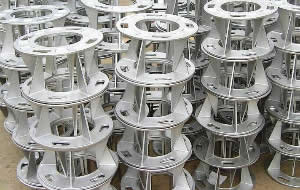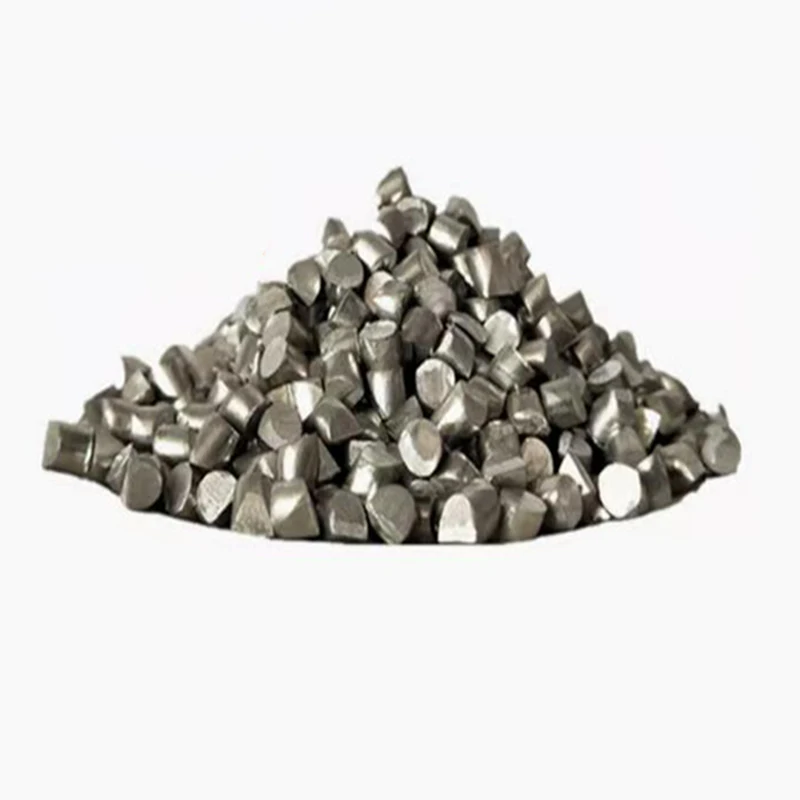How an Aluminum Casting Company maintains high standards
Ideal Practices for Maintenance and Applications in the Light Weight Aluminum Foundry Market: A Thorough Review
Maintaining equipment in the aluminum shop market is essential for functional success. Regular evaluations and predictive upkeep can substantially minimize downtime and enhance safety. Advanced technologies, such as IoT and information analytics, play an essential function in this process. Recognizing the full range of ideal methods requires a more detailed exam of certain approaches and their effects on efficiency. What are the important parts that add to a dependable upkeep framework?
Value of Regular Upkeep in Light Weight Aluminum Foundries
Regular maintenance plays a vital duty in the effective procedure of light weight aluminum factories. By systematically inspecting and servicing devices, factories assure peak efficiency and durability of machinery. Regular upkeep tasks, such as lubrication, cleansing, and part replacement, assistance prevent unforeseen malfunctions that can result in costly downtime.
Moreover, routine checks enhance workplace safety and security by identifying prospective hazards prior to they intensify right into major problems. Tools that is well-kept runs extra efficiently, causing enhanced product high quality and minimized waste. In addition, adherence to a structured maintenance routine can sustain conformity with sector guidelines, therefore cultivating a credibility for dependability and top quality within the market.
Carrying Out Predictive Maintenance Methods
Anticipating maintenance methods take the concepts of routine upkeep a step even more by leveraging data analytics and advanced monitoring technologies. In aluminum shops, these approaches enable drivers to prepare for devices failings prior to they take place, thereby minimizing unexpected downtimes and optimizing functional performance. By using sensors and IoT tools, real-time information can be collected on maker efficiency, enabling the identification of prospective problems with anticipating analytics.
Enhancing Melting and Putting Processes
Reliable melting and pouring processes are vital for optimizing productivity and assuring the quality of light weight aluminum castings. To boost these procedures, shops ought to concentrate on accurate temperature level control during melting, as this straight affects the metallurgical homes of the alloy. Using advanced melting innovations, such as induction and resistance melting, can boost energy effectiveness and lower cycle times.
Implementing automated pouring systems lessens human mistake and maintains consistency in the putting procedure. Appropriate mold prep work, including sufficient preheating, is essential to prevent thermal shock and boost mold and mildew long life.

Enhancing Safety Protocols in Foundry Operations
Focusing on safety and security in light weight aluminum foundry procedures is crucial for protecting employees and ensuring an efficient setting. Effective security protocols consist of routine training sessions that stress the value of personal safety devices (PPE), such as goggles, handwear covers, and helmets. Furthermore, the establishment of clear emergency procedures is essential in managing prospective accidents.
Routine evaluations of devices and machinery help determine risks prior to they rise into serious problems. Executing a robust reporting system motivates employees to interact safety and security concerns without anxiety of repercussion. Additionally, promoting a culture of safety assurances that every staff member comprehends their duty in preserving a protected work environment.
Furthermore, ensuring appropriate air flow and surveillance air top quality can mitigate exposure to harmful fumes and dust. By strengthening these techniques, light weight aluminum foundries can greatly reduce the threat of crashes and produce a setting where workers really feel valued and safe, eventually boosting overall functional effectiveness.
Leveraging Technology for Improved Effectiveness
Making use of innovative modern technology has actually come to be progressively essential for aluminum foundries intending to improve operational performance. Automation and robotics play a crucial function in enhancing production procedures, minimizing labor costs, and minimizing human mistake. Carrying out real-time monitoring systems permits the constant assessment of tools performance, making it possible for aggressive maintenance and reducing downtime.
The assimilation of data analytics gives important insights into functional process, assisting in far better decision-making and resource allotment. Anticipating analytics can identify potential failings before they take place, additional maximizing maintenance routines.
In addition, adopting advanced melting and spreading innovations boosts power efficiency and product yield, which are fundamental for sustainability in the market. By welcoming these technological innovations, light weight aluminum factories can not just boost productivity however additionally maintain an one-upmanship in a significantly requiring market (Aluminum Casting). Eventually, leveraging modern technology is pivotal in driving development and improving general operational efficiency within the market

Regularly Asked Concerns
What Are Common Signs of Equipment Put On in Light Weight Aluminum Foundries?
Common indications of devices wear in aluminum shops include unusual sounds, lowered effectiveness, boosted vibration, overheating components, leakages, and visible deterioration. These indications typically signify the requirement for maintenance or potential substitute to avoid pricey downtime.
Just How Can I Train Team for Effective Upkeep Practices?
To train personnel for effective maintenance techniques, one can apply hands-on workshops, develop thorough guidebooks, encourage mentorship programs, and conduct regular assessments to evaluate abilities and knowledge, guaranteeing all staff members comprehend maintenance methods extensively.
What Are the Ecological Regulations for Light Weight Aluminum Foundries?
Aluminum foundries undergo numerous read more environmental policies, consisting of discharges control, waste monitoring, and resource preservation. Compliance guarantees marginal environmental effect, promoting sustainability while adhering to neighborhood, national, and worldwide environmental requirements and regulations.
Exactly How Do Shops Manage Waste and Recycling of Light weight aluminum?
Foundries handle waste and recycling by applying systems for gathering scrap aluminum, utilizing innovative separation innovations, and teaming up with recycling facilities to guarantee effective healing procedures, consequently decreasing environmental effect and advertising sustainability within the market.
What Are the Expenses Related To Applying Advanced Technologies?
Applying advanced modern technologies in shops sustains substantial costs, including preliminary financial investment, training, and upkeep expenses. Nonetheless, the lasting benefits, such as increased performance and reduced waste, often justify these expenses, bring about boosted productivity.
Regular maintenance plays a crucial role in the efficient operation of light weight aluminum factories. In aluminum foundries, these strategies enable drivers to expect equipment failures before they take place, thereby reducing unplanned downtimes and maximizing operational efficiency. Making use of innovative innovation has actually come to be progressively essential for aluminum shops intending to improve functional efficiency. Usual signs of devices wear in light weight aluminum foundries include uncommon sounds, reduced efficiency, raised vibration, overheating parts, leaks, and noticeable rust. Implementing innovative technologies in shops incurs substantial costs, consisting of initial investment, training, and upkeep expenses.